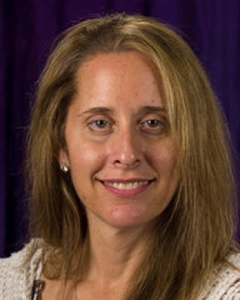Program Overview
Credits: 120
Our Criminology and Criminal Justice program provides a unique educational experience that bridges social scientific theory with current criminal justice policy and practice. This program goes beyond vocational training by blending academic rigor and practical application, preparing you to pursue positions in a wide range of criminal justice-related fields, or enter graduate or law school.
Through internships, research opportunities, and international experiences, our students gain a comprehensive understanding of criminology and criminal justice systems, positioning them for success in various career paths or advanced studies.


If you currently work in law enforcement
online transfer completion program
The Department of Criminal Justice and Criminology is happy to announce a special opportunity for law enforcement officers to complete their bachelor’s degree completely online in one year.

Study Under Industry Leaders
Our faculty’s scholarly productivity leads the western New York region, with the highest number of publications per faculty member and 96% of scholarship placed in ranked and impactful journals.
Unparalleled Expertise
Full-time professors at Niagara have doctoral degrees from elite institutions and engage with students on critical issues like the death penalty, domestic violence, youth gangs, and more.
Real World Impact
Our Criminology and Criminal Justice department produces cutting-edge research that shapes policy and practice, with faculty securing $730,000 in external grants to continue their work.
Discovery Awaits
What You’ll Study at Niagara University
You’ll engage in a comprehensive study of crime, deviance, and the justice system. Our curriculum balances Criminology, the explanatory study of criminal behavior, with Criminal Justice, the analytical examination of how justice systems function and impact society.
Our program stands out for its emphasis on current trends and issues in criminology and criminal justice, including a focus on diversity, equity, and inclusion. We strive to depoliticize these complex topics, encouraging students to seek grounded, evidence-based solutions that balance effective crime control and victim services with the protection of citizenship rights in a free society.


Knowledge, Experience, and Skill Development
Critical thinking skills essential for navigating complex social issues
Proficiency in interpreting criminological research and statistics
Readiness for careers in criminal justice or advanced studies in law or graduate school
Broadened perspectives and empathy for the multifaceted impacts of crime and justice
Ability to interact effectively and ethically with diverse populations in professional settings
Explore This Minor
View Coursework
Pursuing a minor can enhance your academic experience and broaden your expertise beyond your major field of study. The minor coursework is designed to provide foundational knowledge and specialized skills to diversity your academic credentials and future opportunities. Explore coursework for a minor in this program!

Prepare to Soar
Academic, Experiential, and Career Pathways
Opportunities
Nearby municipal police departments (Lewiston, Niagara Falls, and more)
Department of Homeland Security
Niagara Falls Domestic Violence Unit
Niagara County District Attorney’s Office
Niagara County Probation
Lewiston Court
Careers
Law enforcement
Legal practice
Social services
Academic research
Median salary for police and detectives $74,910 per year according to the U.S. Bureau of Labor Statistics

Ready to Apply?
Filling out an application is easy!
NU offers rolling admissions, which means that you can apply at any time for the upcoming semester. Applications are reviewed as they come in, and students are typically notified of an admission decision in 3-4 weeks. What’s stopping you?
Apply Now

